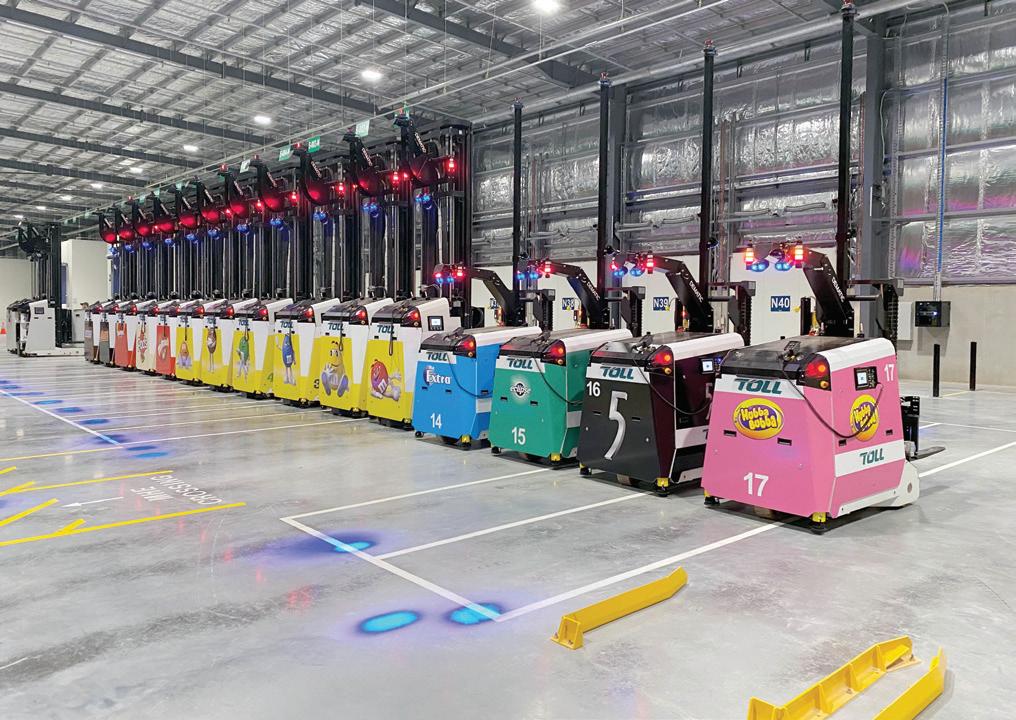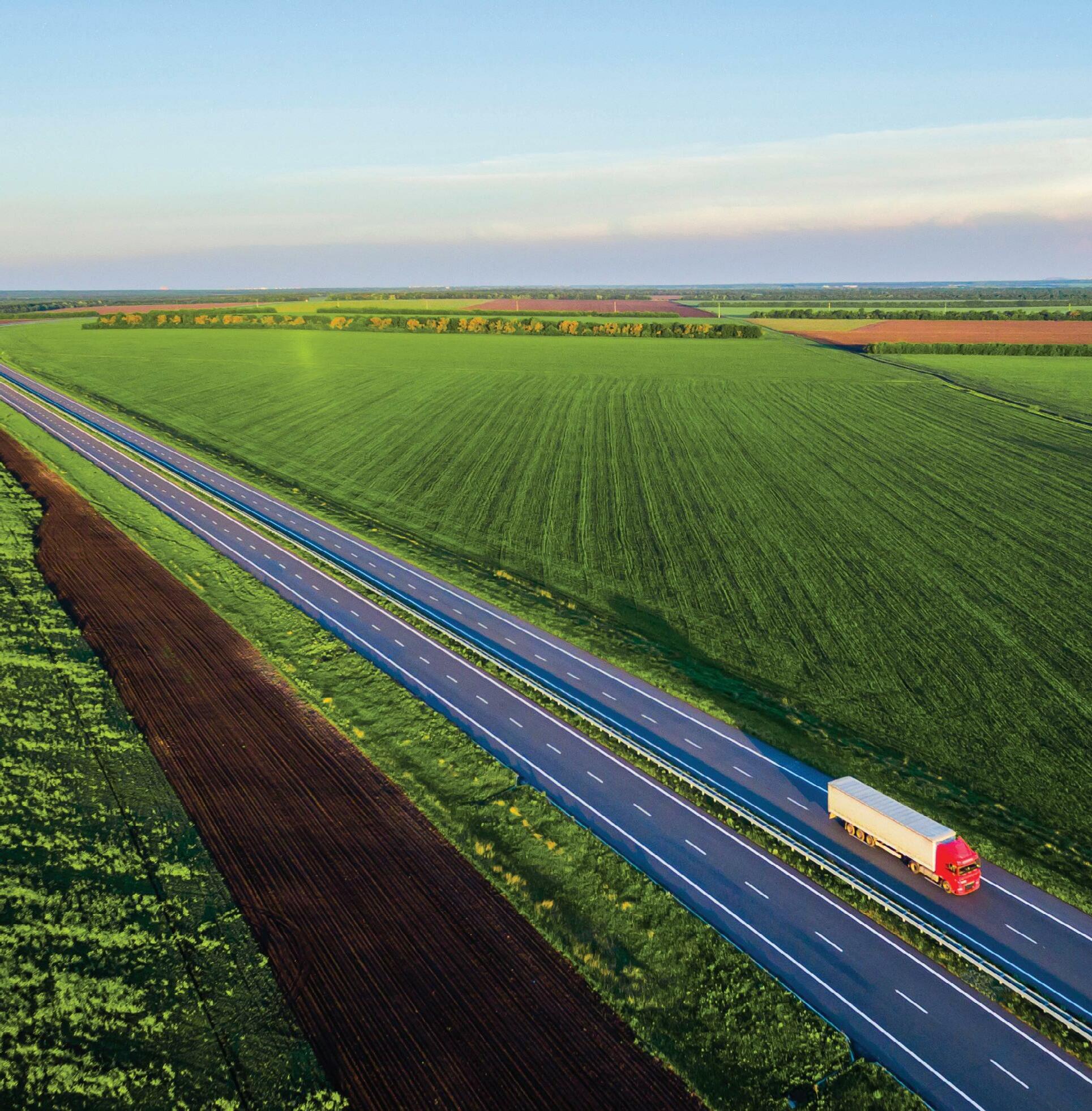
18 minute read
The three golden rules of cold chain supply
BULK HANDLING, STORAGE & LOGISTICS
The three golden rules of cold chain supply
The road from paddock to plate can be a long one in a vast, sun-baked country like Australia. One in three food products are lost or wasted along the way each year, often because of breaks in the cold chain — the refrigerated transport and storage of fresh, chilled, and frozen foods from farm or factory to point of sale. The greater the distance food travels, and the more times a product is transferred between suppliers, transporters, distributors and retailers, the more likely it is that a break might occur in the cold chain, which could cause food to spoil.
Cold chain conditions are set for foods relating to the maximum and minimum temperature requirements, and the length of time a food product can be allowed to remain unrefrigerated. Rotating stock to ensure that products are sold before reaching their expiry date is the final rule guiding cold chain supply.
An uninterrupted cold chain gives a guarantee that food is safe to eat when it reaches the consumer. Breaks in the chain could affect the quality of the food, and its shelf life, potentially making the food unsafe to eat. Let’s take a closer look at Australia’s cold chain supply rules.
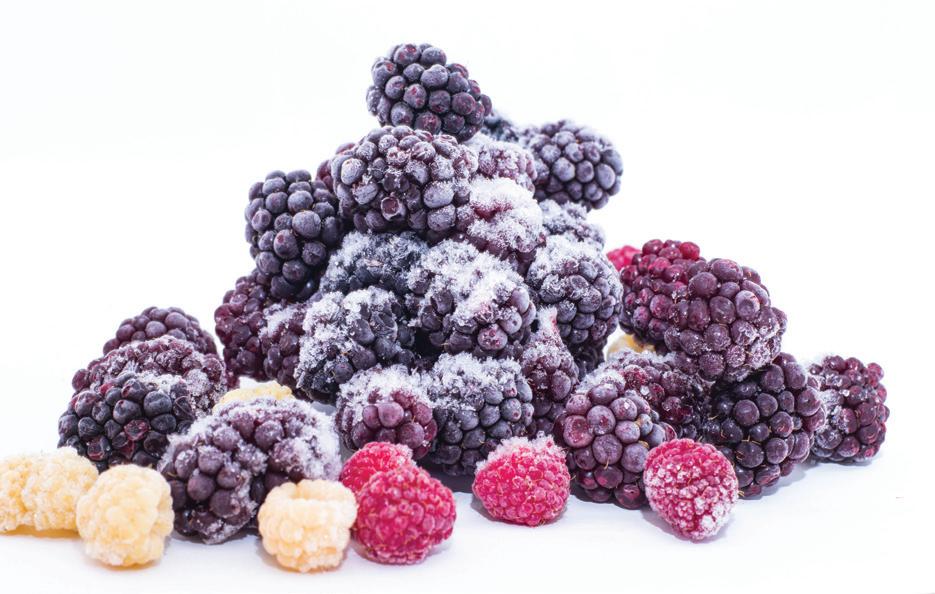
Never warmer than
The NEVER WARMER THAN rule governs the maximum temperature at which food should be transported, stored and handled. Chilled foods may also have a KEEP ABOVE temperature to ensure that food is not damaged by being frozen. While food manufacturers and producers are responsible for setting any NEVER WARMER ©stock.adobe.com/au/kate_5 THAN and KEEP ABOVE tem-
©stock.adobe.com/au/drotik

peratures, Australian Food and Grocery Council guidelines recommend that chilled foods are never warmer than 5°C and frozen foods never warmer than -18°C. The same guidelines recommend that chilled foods are kept above 0°C to prevent damage from ice crystal formation. Temperatures must be specified in all documents accompanying the food and communicated from each link in the cold chain to the next.
A recent study Muddy Boots by TELUS Agriculture conducted within the food retail sector identified food safety concerns on high-risk products which were running significantly over temperature guidelines during transit. More than half of all trips were in breach of temperature guidelines, with 25% of high temperature trips posing potential food safety risks.
Maximum out of refrigeration
The maximum out of refrigeration rule specifies the length of time a food can be outside a temperature-controlled environment without breaking the cold chain conditions.
While time limits are set by producers and manufacturers, AFGC guidelines recommend chilled foods are not out of refrigeration for more than 20 minutes. Frozen foods being unloaded or dispatched in ambient, or room temperature, conditions should likewise have a maximum out of refrigeration time limit of 20 minutes, extending to 60 minutes in air-conditioned environments of 5°C to 15°C and 90 minutes in refrigerated zones of 0°C to 5°C. Ice-cream should have a maximum out of refrigeration limit of 20 minutes in chilled zones and never stored at room temperature.
The maximum out of refrigeration rule helps maintain the quality of produce, which can rapidly deteriorate if time limits are exceeded, and temperature thresholds are breached. Muddy Boots’ study found products were spending significant amounts of time — 24 hours or more — in trailers during transit, with temperature guidelines breached during loading and unloading and along some supply routes.
First expiry — first out
Foods with an earlier expiry date should be the first selected for dispatch or use. This simple stock rotation principle helps to minimise food waste, but requires a proper inventory management system to implement correctly. Food may be delivered out of the expiry date sequence, and the most recently delivered produce is usually also the most accessible. This rule extends right down the supply chain from suppliers and transport hauliers to dispatch centres and retailers.
The importance of record keeping
A careful record of the cold chain is the only way of ensuring that cold chain conditions remain intact. Sloppy record keeping not only fails to assure consumers that food spoilage has not occurred — but could itself be grounds for rejecting goods.
Scan it. Rip it. Stick it. Ship it.
Muddy Boots by TELUS Agriculture’s cold chain solution simplifies cold chain compliance, allowing producers, wholesalers and retailers to monitor quality, compliance and temperature data every step of the way. The result? Improved food safety, reduced waste and increased shelf-life — while managing your inventory and following best cold chain practice on one easy-to-use digital platform.
Their contactless smart label has been specifically designed for the food cold chain. Each tag is the size and thickness of a postcard, allowing it to be stuck either in or on packaging to provide a more accurate reflection of the temperature experience. Simply scan the barcode and tear the strip for activation. The cold chain tag is a disposable and recyclable contactless smart label that enables accurate temperature monitoring of virtually any product from source to store.
“We plan to use Muddy Boots Cold Chain Management as an ongoing commitment to our food safety and quality,”
said Michael Rogers, Health, Safety and Compliance Manager at Sundrop Farms.
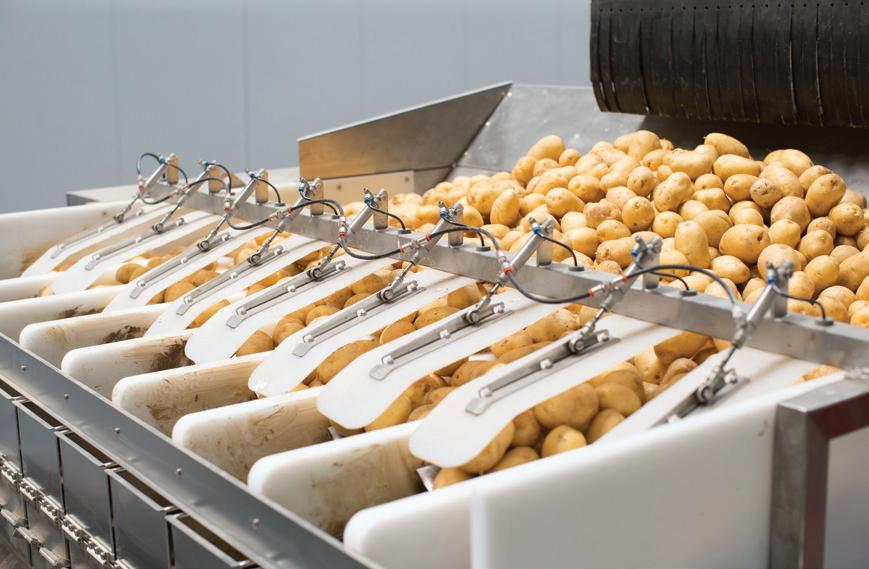
From soil to supermarket: streamlining potato and onion processing
An Australian processor and packer of potatoes and onions, Mitolo Family Farms (Mitolo), has engaged New Zealand fresh produce software provider Radford Software (Radfords) to streamline its operations across the entire value chain — from soil to supermarket.
Back in early 2020, Mitolo went looking for a software systems partner to transform its operations and prepare the business for more customers and new markets. It was rethinking the way it grew, packed and sold produce — with the objective of better integrating all aspects of the business, improving customer service and finding new administrative efficiencies.
Mitolo is a fully integrated business encompassing seed development, farming, processing, packing and distribution. It produces multiple lines over 40,000 hectares in three states for domestic and export markets. Radfords was chosen to be involved with its onion and potato operations.
Radford Software Chief Executive Officer Adam Cuming said he was delighted that South Australian-based Mitolo Family Farms had chosen Radfords to support its next phase of growth.
According to Mitolo’s Chief Commercial Officer, Sue Edwards, the choice of Radfords for its new ERP system became obvious throughout the selection process. “As well as the solution, what differentiated Radfords was their practical, on-the-ground knowledge of fresh produce and a genuine willingness to help us succeed in our project. To date as we move through detailed design, that has not wavered and we have a high level of confidence in the Radfords team.”
Radfords has been helping fresh produce operators transform the way they grow, pack and sell for more than 30 years. Its software solutions are designed to give complete control and visibility across the supply chain — from soil to supermarket.
‘Relatively off-the-shelf’ software was used to transform Mitolo’s current manual systems and processes across the entire business — from farm management and product traceability to sales and marketing, business reporting and planning.
As well as Radfords’ core traceability and inventory management solution, FreshPack, Mitolo will adopt Radfords’ FreshGrow and FreshQuality platforms, together with its data warehousing and business intelligence tool, FreshInsights.
FreshGrow is an end-to-end management solution, streamlining day-to-day operations on farms and orchards, ensuring input and resource data is captured and maintained in one central location. FreshQuality simplifies the QC process and recording of produce quality assessments, capturing test results throughout the supply chain.
The first phase of the Mitolo project is due to go live in May 2022. Radfords www.radfords.global/home

©stock.adobe.com/au/kentoh
CASE STUDY
Potato processing facility upgrade in Spain
©stock.adobe.com/au/Retan Spanish potato processor Patatas Melendez has selected Wyma Europe as its primary partner to design and manufacture an innovative potato processing facilities.
The potato facility in Medina del Campo, Spain, will be the cornerstone in a broader project which will involve the complete digitalisation of Melendez’s production process.
“In selecting a line supplier, we had a number of key criteria,” said Patatas Melendez CEO Javier Melendez. “These included – the quality of the machinery, line/staff safety, very gentle potato handling, line efficiency and smart automation. Wyma Europe met and demonstrated these key criteria.”
According to Jason Gerrie, Managing Director of Wyma Europe, the plant will incorporate the latest technology, including potato pre-grading, destoning/washing/polishing and optical grading solutions designed to maximise potato yield. He said an automated box storage and handling system (supplied by Deprez Construct), multiple new packaging lines and an automation system will also be used for the digitalisation of the production process.
The plant expected to be operational by the end of 2022. Wyma Engineering (NZ) Ltd www.wymasolutions.com
Grease- and oil-free vertical pump bearings
Cut To Size Plastics’ Thordon range of plastic bearings is a selection of oil- and grease-free vertical pump bearings designed for long-lasting, high-performance use. The product range offers high abrasion-resistance, dry start-up capability and is self-lubricating.
The elastomeric and thermoplastic range absorbs impact or shock loads with a dampening capacity that is almost five times larger than the capacity offered by rubber bearings, while also having a better wear rate than brass bearings. A low dry coefficient of friction means that the range has improved efficiency and the low friction properties result in reduced start-up torque.
The range can be used in open and closed tube vertical pumps from a range of industries and with a variety of different pump types. The products in the range are corrosion-resistant and are able to withstand high temperatures.
The range offers flexible sizing, easy machining and installation. The bearings can be installed and removed with high speed to allow for quick maintenance.
Cut To Size Plastics Pty Ltd
www.cuttosize.com.au
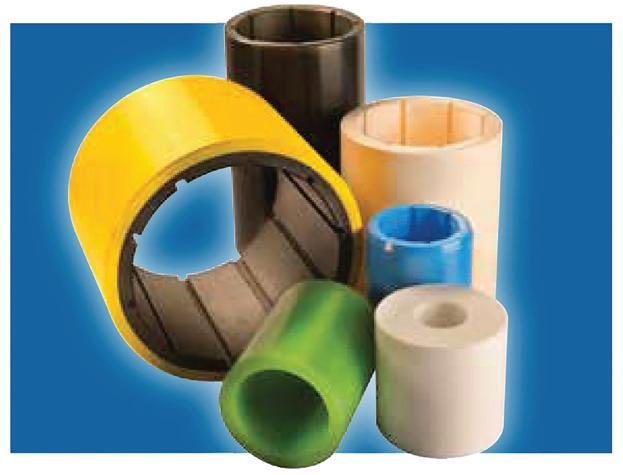

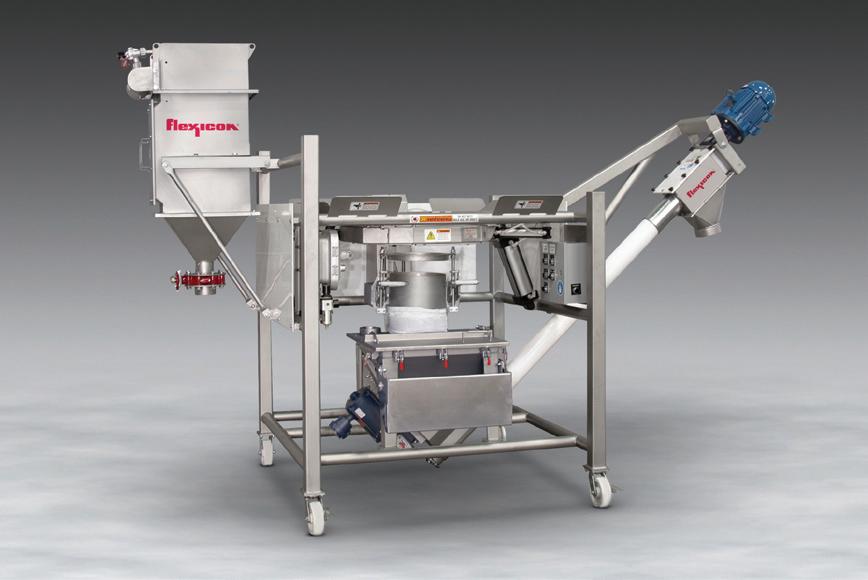
Portable half-frame discharger with bag dump, flexible screw conveyor
A new portable half-frame Bulk Bag Discharger with manual Bag Dump Station and integral Flexible Screw Conveyor transfers material discharged from bulk bags and/or manually dumped from hand-held sacks into downstream process equipment or storage vessels, dust free.
Mounted on a mobile frame with locking castors for in-plant mobility, the system minimises weight and maintains a low centre of gravity by eliminating upper frame components, relying on the user’s forklift or plant hoist to suspend bulk bags above the discharger during unloading.
A Tele-Tube telescoping tube raises a Spout-Lock clamp ring pneumatically for connection to the bag spout, and then descends by gravity, maintaining constant downward tension on the spout as the bag empties and elongates, promoting flow.
At timed intervals, Flow-Flexer bag activators raise and lower opposite bottom edges of the bag to loosen agglomerates and direct material through the bag spout. As the bag lightens, the stroke of the bag activators increases, ultimately forming a steep “V” shape to promote total discharge.
For manual dumping, the operator raises a hinged bag-dump support shelf and a hinged hopper door, and pours material through a coarse screen into the hopper.
When the hopper lid is open for manual dumping, an integral Bag-Vac dust collector draws air and dust away from the operator. When the hopper lid is closed, the dust collector creates negative pressure within the dust-tight system to contain dust during discharge, and to collapse empty bags prior to retying and disconnection, eliminating dust emitted during manual flattening of empty bags.
The flexible screw conveyor transports both free- and non-free-flowing bulk materials including products that pack, cake, smear, seize or fluidise, with no separation of blends. The conveyor support mast cantilevers from the frame, and runs parallel to the conveyor tube, allowing the castor-mounted system to manoeuvre in restricted areas.
Ready to plug in and run, the self-contained system can serve multiple functions throughout the plant. Afterwards it can be rolled to a cleaning station where a lower clean-out cap on the conveyor tube can be removed to flush the smooth interior surfaces with steam, water or cleaning solutions, or to fully remove the flexible screw for cleaning and inspection.
The system is available in all-stainless construction, with stainless material contact surfaces, or in carbon steel with durable industrial coatings.
Flexicon Corporation (Aust) Pty Ltd
www.flexicon.com.au
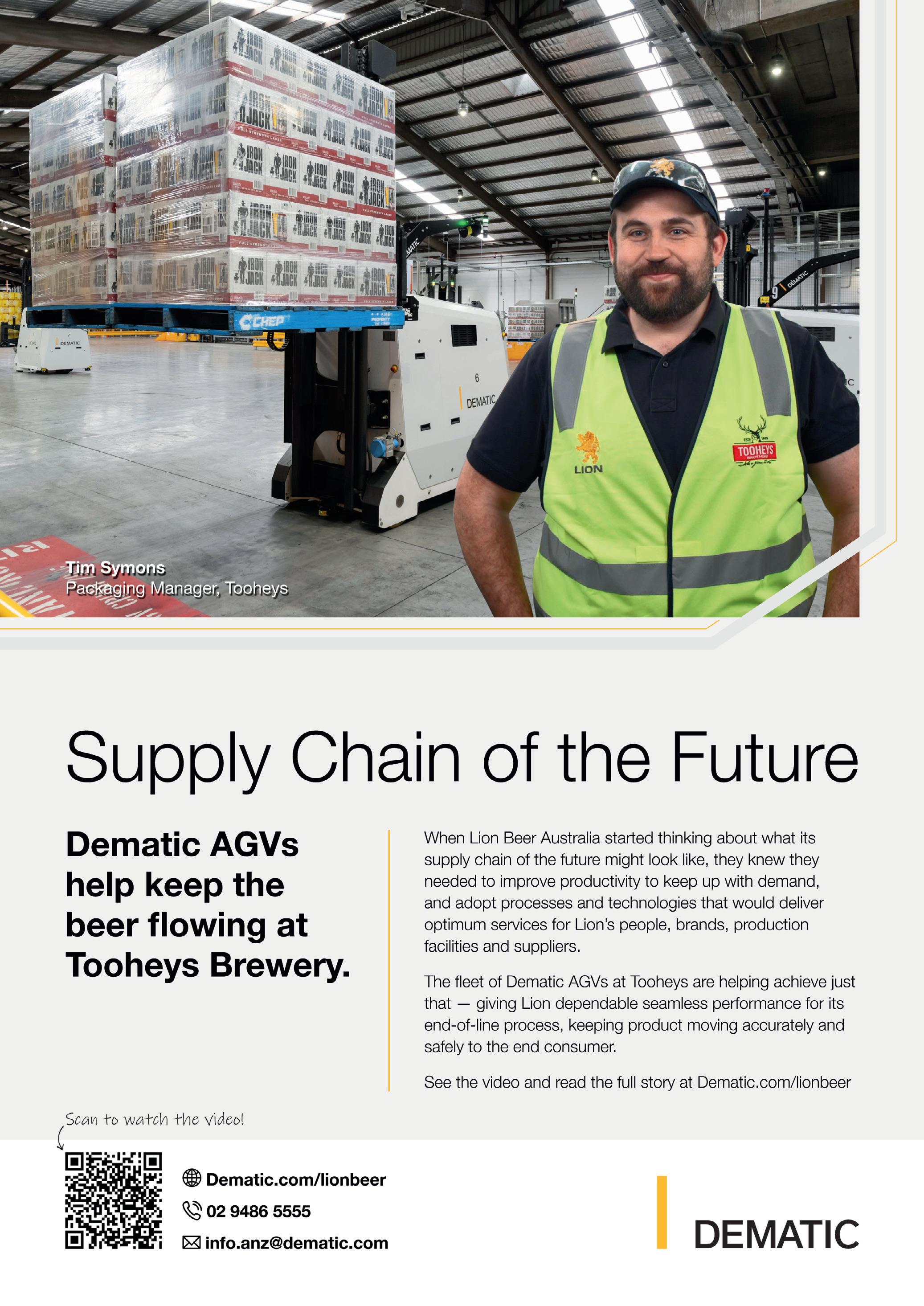

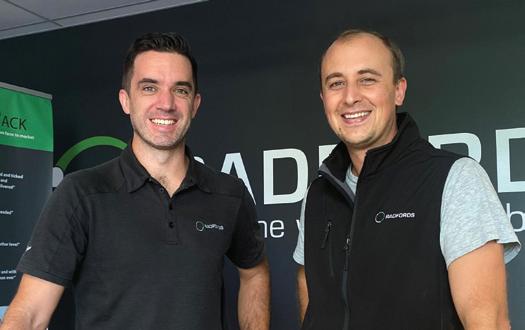
NZ packhouse technology used by Aussie asparagus producer
New Zealand fresh produce software provider Radford Software has remotely onboarded Australian asparagus producer and distributor Raffa Fields to implement a packhouse system. This is the company’s first move into the asparagus sector and also the first remote implementation of its packhouse solutions due to the pandemic.
Royce Sharplin, Customer Success Manager at Radfords, said the FreshPack traceability, grading and inventory management solution and the FreshQuality quality control-focused application were launched at Raffa Fields’ Victorian packhouse in time for the 2021 spring harvest.
Family owned and operated, Raffa Fields is one of the three largest asparagus producers in Australia. Annually, it produces around 2000 tonnes of asparagus in the Koo Wee Rup region for domestic and export consumption, and distributes imported asparagus during its off-season.
Sales and Operations Manager Rosalee Raffa said the software had transformed packhouse operations and created multiple efficiencies, saving the sales and logistics team up to five hours a day.
“Two years ago we began supplying direct to Coles, which gave us the opportunity to also run an import program. Between this and our local production process, our custom-built software solution was not keeping up with our needs. By April last year, we were in dire straits and asparagus season was approaching. We were looking for an end-to-end solution that could handle a complex and specific product process from harvesting the raw product to final sale,” Raffa said.
“We went to see FreshPack in action at Priest Bros Orchards, Victoria, and they couldn’t speak highly enough about the software and Radfords.”
Radfords Product Owner Nick Eggmann said FreshPack had evolved in the years since its development to be ‘produce-agnostic’, allowing any producer to adopt it without customisation beyond minor configuration to suit individual workflows.
“As it is off-the-shelf, the only modification made for Raffa Fields (after go-live) was to integrate scales to record weight crates at the time of receival,” Eggmann said.
“Traceability was a key objective for Raffa Fields. They needed a system that provided good inventory and stock control from harvesting to distribution [to help] them
move away from handwritten notes and duplication of data. “The biggest challenge for us was not being on the ground at crucial stages of the 12-week project. We had Royce Sharplin and Nick Eggmann to rely on information provided to be from Radfords. correct — everything from the layout of the packhouse to how the business worked. It required constant and clear communication and documentation. Raffa Fields’ willingness to invest in the process made the project successful.” Raffa Fields was undaunted that Radfords hadn’t worked in the asparagus space. Rosalee Raffa, Sales and Operations “We saw it as an opportunity to be the Manager, Raffa Fields. first (in asparagus) to adopt its technology. Everything Radfords said at the start has been backed up with action. They were very upfront about our August deadline and how they would make that happen. They broke it down into measurable tasks and met all the deadlines,” Raffa said “Importantly, Radfords supported our business as it was, and the software fitted like a glove. If anything, they adapted their processes to suit us. We prioritised the project over everything else because we recognised the importance of having it go live for the harvest.” The solution has eliminated manual processes and the company is now able to use its time to analyse the data, rather than spend that time trying to extract it. Radfords is now implementing an EDI (electronic data interchange) to streamline the ordering process between Raffa Fields and Coles supermarket chains. Radfords www.radfords.global/home
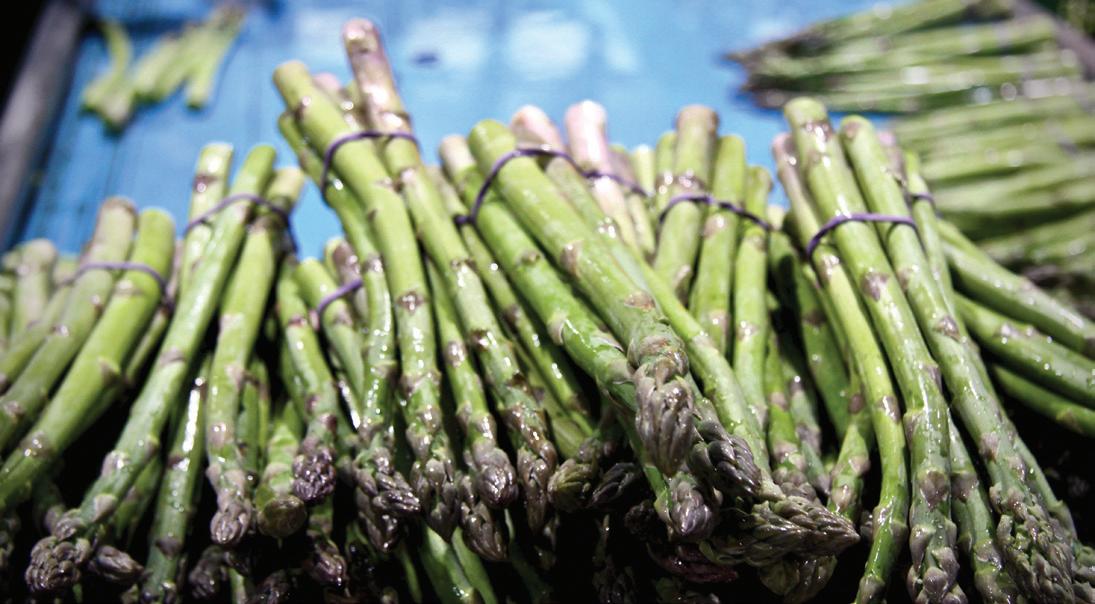

Macadamia processor cracks into the latest sorting tech
©stock.adobe.com/au/karepa
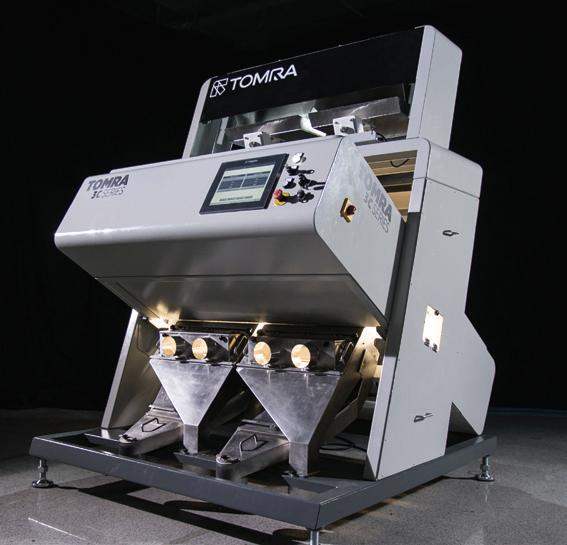
When a group of South African macadamia farmers decided 20 years ago to collaborate in processing and marketing their crops themselves, they initiated a strategy that would prove successful.
Anticipating the need to produce macadamias in even greater quantities while ensuring quality, Golden Macadamias is expanding its factory near Johannesburg with the goal to be operational in the 2022 season.
The company has invested in the TOMRA 5C premium optical sorting machine, which has been explicitly developed for nut and dried fruit applications. When this machine is combined with TOMRA’s unique Biometric Signature Identification (BSI) scanning technology, it can also be used to detect and eject product defects.
Macadamias are still seen as a young industry and comprise about 1–2% of the total world tree nut basket, with almonds, walnuts, pistachios, cashews and hazelnuts contributing 95%.
Norman Smith, Area Sales Manager Africa, TOMRA Food, said: “Today 98% of the macadamia crop is exported. Approximately 55% of South Africa’s macadamias are sold to the kernel market, mostly for export to the USA, Europe and Asia. The other 45% goes to the in-shell market, some for sale domestically but mostly for export to China, where consumers prefer to crack the shells themselves. It is the kernel market which demands the greatest product quality.”
A mix of manual and automated sorting
Macadamia nuts are harvested after they have fallen naturally to the ground. The first task is to remove the green outer husks, then the nuts in their shells are sorted to remove foreign materials and defective products. After this, the nuts are graded by size. Because two-thirds of each nut comprises shell, processors have to deal with an extremely high defect level after cracking the nuts. Significant quantities of shell must be moved removed to clean up the kernel. Some macadamia sorting is still done the traditional way, by hand. In addition to grading being done manually, nuts are put into a water bath early in the production process, where only the unwanted immature and underdeveloped nuts float to the surface and can be manually removed. But human sorters are unavoidably subjective, imperfect and more vulnerable to error when tired or bored. Manual sorting can also diminish product quality because handling kernels makes them oilier. To minimise these drawbacks, Golden Macadamias complements the sorting tasks that have to be done manually with sorting wherever possible by machines. Unlike human beings, automated sorters can assess nuts objectively, accurately, consistently and at speed for hour after hour without any deterioration in efficiency. What’s more, mechanical sorters can detect and eject a vast range of in-shell defects invisible to the human eye. Product quality is enhanced through these automated capabilities, throughput is high, food waste minimised and yield improved. Golden Macadamias employs TOMRA’s BSI technology after the nuts are cracked and before they are manually graded.
Peter Edmondson, General Manager at Golden Macadamias, commented: “Our partnership with TOMRA has proved strong throughout the years. It has allowed us to pioneer the ideal processing solution for the macadamias market, where we continuously develop new solutions and technologies.”
The TOMRA 3C eliminates foreign materials, including stones, shells and sticks, and, depending on the sorting process, can achieve an efficiency of up to 99.5% purity. It is also suited to separating shell from kernel with a low giveaway. The machine is capable of sorting more than 20 tons of nuts per hour.
The TOMRA 3C can also be used in a second position on the line to remove major discolorations, rotten and mouldy kernel, and any remaining shell. The TOMRA BSI+ technology can then scan materials with both near-infrared (NIR) and visible spectrum wavelengths. This instantly compares the biometric characteristics of objects to features stored in its database to determine whether they should be accepted or rejected.
Edmondson said: “As well as identifying the hard-tofind defects, TOMRA’s BSI technology has increased factory throughput by 10%. This means the payback period for the technology will be no longer than about two years.”
These results convinced Golden Macadamias to purchase the recently launched successor to the Nimbus, the TOMRA 5C, the latest platform to use BSI+ Technology.
TOMRA Sorting Solutions Pty Ltd www.tomra.com
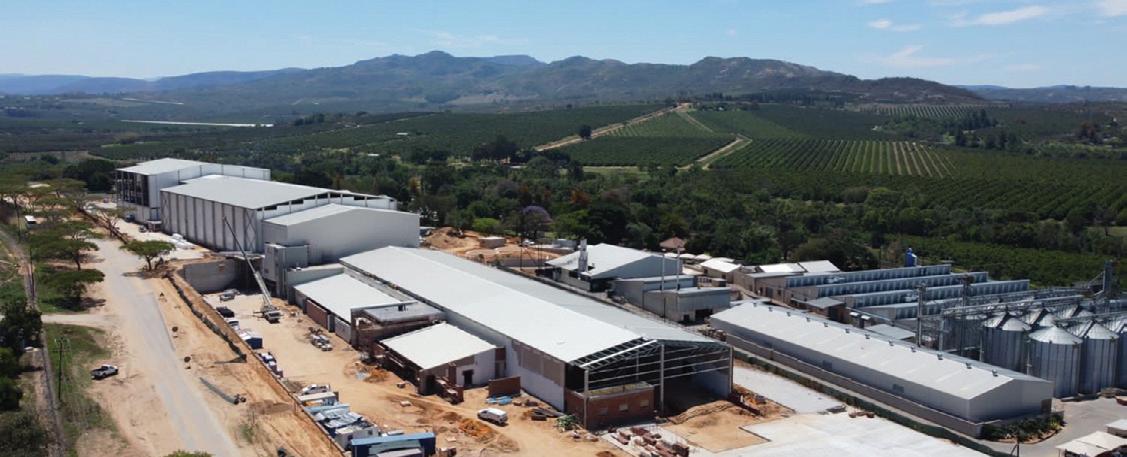
Automated guided vehicles
Automated Guided Vehicles (AGVs) are used in a variety of industries to transport and store all kinds of products and materials all without human intervention. Equally at home in factories, warehouses, distribution centres and shipping areas, AGVs can provide a safe and secure way to increase process efficiency and improve business profitability. They automatically transport goods between systems including delivering and collecting loads from conveyors, processing machines, palletising systems and automated storage and retrieval systems (AS/RS), and store and retrieve in block-stack or racking over 10 m high.
Thanks to their accuracy and safety features, AGVs can create a safer working environment, with no accidental collisions and zero damage to product loads. They also strictly comply with and exceed the demands of international safety standards.
AGV systems can provide a safe and cost-effective alternative to manually transporting goods, especially sensitive or hazardous products, and are suitable for materials handling applications in harsh conditions including outdoors and in cold stores.
Dematic AGVs are manufactured at its Australian facility in Sydney, and the company provides service and support region wide. The company can analyse a user’s current operation and suggest and supply solutions for transport, interface, loading, unloading and routing.
Dematic can supply fully integrated automation solutions for every application.
Dematic Pty Ltd
www.dematic.com.au
